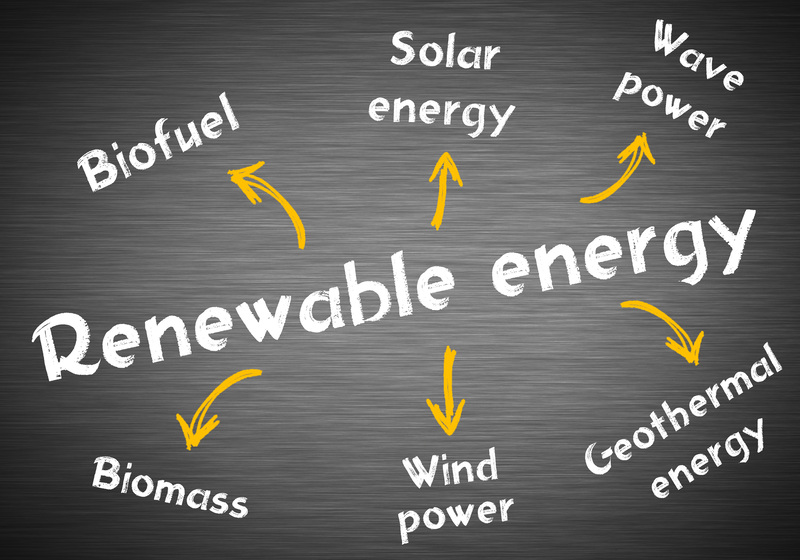Optimized Methods for Waste Reduction in Manufacturing
In today's rapidly evolving industrial landscape, minimizing waste in manufacturing processes is not just a commitment to environmental stewardship but also a critical factor in enhancing operational efficiency and reducing costs. Waste reduction is paramount for manufacturers aiming for sustainability and profitability. This comprehensive article delves into strategic, optimized methods to minimize waste in manufacturing, ensuring a dual benefit of ecological responsibility and economic gain.
The Importance of Waste Minimization in Manufacturing
Waste reduction is imperative for the manufacturing industry, which is often scrutinized for its environmental impact. By implementing effective waste reduction strategies, manufacturers can gain the following benefits:
- Cost savings: Optimized waste reduction methods can significantly lower disposal and material costs, directly impacting the bottom line.
- Regulatory compliance: Reducing waste helps companies comply with strict environmental regulations and avoid hefty fines.
- Improved brand image: Companies demonstrate a commitment to sustainability, which can enhance their reputation among consumers and stakeholders.
- Resource conservation: By minimizing waste, manufacturers contribute to conserving natural resources and reducing environmental degradation.

Key Methods for Waste Reduction in Manufacturing
To effectively reduce waste, manufacturers must adopt innovative methods that encompass technological, managerial, and procedural improvements. Here are some of the most effective strategies:
1. Lean Manufacturing Principles
Lean manufacturing is a widely adopted strategy focused on maximizing productivity while minimizing waste. Key principles include:
- Just-In-Time Production: Implementing just-in-time production ensures materials and products are received precisely when needed, reducing overproduction and inventory costs.
- Value Stream Mapping: By mapping out the entire production process, manufacturers can identify waste areas and make data-driven improvements.
- Continuous Improvement (Kaizen): Promoting a culture of continuous improvement encourages employees to regularly suggest process enhancements that reduce waste.
2. Advanced Manufacturing Technologies
Technology plays a pivotal role in minimizing waste in manufacturing. Cutting-edge technologies include:
- Automation and Robotics: Automated systems reduce human error, improve precision, and decrease material waste, especially in assembly and packaging processes.
- 3D Printing: Also known as additive manufacturing, 3D printing allows for custom production without surplus materials, significantly reducing material waste.
- Internet of Things (IoT): IoT-enabled devices provide real-time data analytics, which help in optimizing production lines and minimizing waste.
3. Sustainable Supply Chain Management
Optimizing the supply chain plays a crucial role in reducing manufacturing waste. Strategies include:
- Supplier Collaboration: Collaborate closely with suppliers to ensure sustainable raw materials and reduce packaging waste.
- Efficient Transportation: Optimize transportation routes and methods to minimize fuel consumption and carbon emissions.
- Lifecycle Assessment: Assess the environmental impact at each stage of a product's life cycle to identify and mitigate waste sources.
4. Recycling and Reuse Strategies
Recycling and repurposing materials are key components of waste reduction:
- Material Recovery Facilities (MRFs): Establish on-site MRFs to segregate and recycle waste materials effectively.
- Product Redesign: Redesign products for easier disassembly and recycling at the end of their lifecycle.
- Closed-Loop Systems: Implement systems that reuse waste by-products within the manufacturing process, thus reducing raw material needs.
5. Employee Training and Engagement
Engaging employees in waste reduction initiatives is critical to their success:
- Training Programs: Educate employees on best practices in waste reduction and sustainable manufacturing.
- Incentive Systems: Create reward systems that incentivize employees to suggest and implement waste minimization measures.
- Employee-Led Teams: Form cross-functional teams focused on identifying waste reduction opportunities at every operational level.
Case Studies: Successful Waste Reduction in Manufacturing
Several leading manufacturers have successfully implemented waste reduction strategies, showcasing the tangible benefits of these initiatives:
Toyota's Lean Manufacturing
Toyota is renowned for its pioneering role in adopting lean manufacturing. By focusing on continuous improvement and waste reduction, the company has significantly enhanced efficiency and reduced production costs over the decades. Their use of just-in-time production and value stream mapping has minimized excess inventory and improved overall productivity.
Patagonia's Sustainable Practices
Outdoor clothing company Patagonia has prioritized sustainability through closed-loop production systems. They encourage consumers to return old products for recycling and offer repairs to extend product life, exemplifying commitment to reducing environmental impact.

The Future of Waste Reduction in Manufacturing
The future of manufacturing hinges on sustainable practices and waste minimization. Innovations in green technologies and enhanced regulatory frameworks will drive manufacturers towards more eco-friendly practices:
- Embracing Circular Economy: Moving towards a circular economy model, where waste becomes a resource, will be crucial for sustainable manufacturing.
- Blockchain for Transparency: Using blockchain technology, manufacturers can ensure transparency and traceability in supply chains, helping to eliminate sources of waste.
- Biodegradable Materials: Developing biodegradable materials will significantly reduce the environmental footprint of manufacturing industries.
Conclusion
By adopting optimized methods for waste reduction in manufacturing, businesses not only contribute to environmental sustainability but also enhance their operational efficacy. A concerted effort towards implementing lean manufacturing principles, leveraging advanced technologies, and fostering sustainable practices can drive substantial benefits. As industries continue to innovate, the ongoing commitment to reducing waste will shape a sustainable and prosperous future for all.
In conclusion, manufacturers are at a pivotal moment where they can redefine industry standards by integrating comprehensive waste reduction strategies. The transition towards efficient, sustainable, and environmentally friendly manufacturing practices is not only beneficial but vital for the future. Embracing change and innovation are essential for manufacturers aiming to lead in this new era of sustainability.